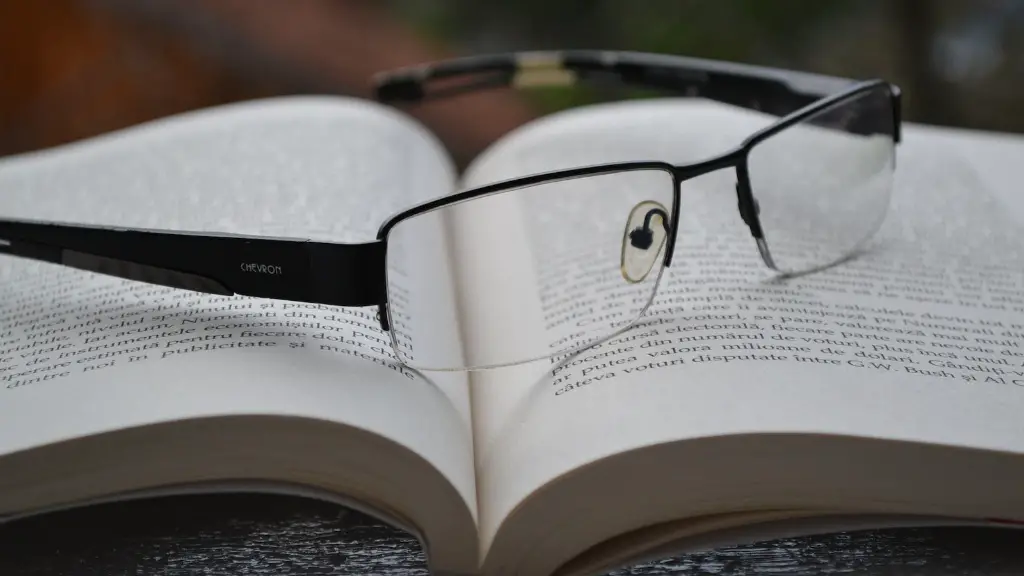What is Subject Matter in Poetry?
Poetry is a form of literature that uses aesthetic and rhythmic qualities of language to create an emotional response in the reader. Subject matter in poetry is defined as the topics or themes that poets choose to write about and explore. Poetry can take on a variety of forms, including lyric, epic, narrative, and drama.
The subject matter of a poem can be anything from nature, relationships and love, to the most complex and abstract topics. Some renowned and well-known poets such as Shakespeare, Wordsworth and Keats were known for their focus on nature and its beauty. On the other hand, modern and more contemporary poets such as Anne Sexton, Sylvia Plath and Robert Frost were more interested in exploring the complexities of the human condition.
When diving into the subject matter of a poem, one often looks at the dominant themes present in the work. These themes usually reveal insight into the poet’s perception of the world and the ways in which they express their thoughts and ideas. Not all poems will have explicit or easily spotted themes, as many works of poetry allow the reader to infer their own meaning and interpretation of the poem.
In some ways, the poem’s subject matter can be linked to its style and structure. Generally, different styles of poetry will require different forms of writing and sentence structures. For example, lyric poetry requires more emotion and the use of the active voice, in order to give it the impact it needs. On the other hand, narrative poetry may be better suited to the use of the passive voice.
The subject matter of a poem is essential to its interpretation and, as such, is fundamental to the understanding and appreciation of a poem. It is therefore important to identify the main topics or issues being explored in order to form an interpretation of the poem. This can be done by focusing on the words and phrases used, their order and any stylistic techniques employed.
Subject matter can also be used as a way to categorise poems and distinguish one poet’s works from another. Different authors may have different perspectives and themes that they wish to explore, and this can be seen in the subject matter of their work. For example, the themes of William Wordsworth and T.S. Eliot are quite distinct.
The Role of Imagery in Poetry
Imagery is an important tool for poets; it allows them to capture the reader’s interest and attention and give more depth to the poem. Imagery can be used to focus the reader’s attention to particular ideas or feelings and to engage them more fully with the poetic experience. For example, the use of an extended metaphor can draw the reader into the world of the poem and enhance their understanding of the subject matter.
Symbols and metaphors are also used frequently in poetry and are often used to evoke an emotional response. By linking a concrete symbol or metaphor to an abstract idea, the poet can help the reader to see the bigger picture and understand the underlying meaning of the poem. For example, a poet could use the metaphor of a river to show the ups and downs of a relationship or the cycle of life.
Imagery is used to create vivid and memorable depictions of the subject matter of the poem and can be used to convey emotion and atmosphere. The use of imagery can bring the abstract concepts of a poem to life, making them easier for the reader to comprehend. Poets often use vivid imagery to create an emotive connection with the reader and to help them to understand the main themes and ideas of the work.
Imagery is also important when it comes to interpreting the poem’s subject matter. Images can provide clues and information about the subject matter which can then be used to form an interpretation of the poem. The use of language and imagery can also provide a link between the poem and the real world, making the ideas in the poem easier to relate to and understand.
The Use of Language in Poetry
In order for a poem to effectively explore its chosen subject matter, it must use the right kind of language. Poets often use vivid and descriptive language to capture the emotion and concept of their work. They also often use poetic devices such as figurative language, alliteration, assonance and rhyme to create a certain rhythm and style in their poem.
The use of language plays an important role in conveying the subject matter of a poem. Different words can be used to give the poem an emotive quality or to create an atmosphere. This can help the reader to visualise the poem and experience it more deeply. Poets often use figurative language to evoke an emotional response in their reader and to bring the poem’s ideas to life.
Language is also integral to interpreting the poem’s meaning. Different words and phrases carry different connotations, and these can be used to convey the poet’s opinion and perspective. Poets often weave multiple layers of meaning into their work, and understanding the language used can help unlock the underlying meaning of the poem.
The Use of Rhyme in Poetry
Rhyme is one of the most important elements of poetry and can be used to enhance a poem’s subject matter. Rhyme can be used to emphasise certain words, ideas and concepts in a poem, and so it is important to consider when interpreting a poem. Rhyme can also be used to connect two themes or ideas, as well as to create a certain rhythm and pattern in a poem.
Furthermore, rhyme can contribute to the overall atmosphere and mood of a poem. It can create a sense of unity and flow, and can contribute to the emotional impact of a poem, allowing the reader to engage more deeply with the subject matter.
Rhyme schemes can also be used to structure a poem and create a form which reflects the poem’s ideas. Different rhyme schemes can be used in different types of poetry, such as sonnets and ballads, and these can be used to help the reader understand the overall theme of the poem.
Using Poetic Devices to Enhance Subject Matter
Poets often use poetic devices such as imagery, symbols, and literary techniques to enhance a poem’s subject matter. By using these devices, poets can draw the reader’s attention to a certain aspect of the poem or emphasise a particular idea. Devices such as metaphor and simile can be used to create vivid descriptions, and alliteration, assonance and onomatopoeia can be used to create a certain rhythm or atmosphere.
The use of poetic devices can also add depth and meaning to the poem’s subject matter, thereby enhancing the overall impact of the poem. By using different devices and employing them in different ways, a poet can enrich the poem’s content and give it more power and meaning. This can help the reader form an opinion and develop an understanding of the poem’s subject matter.
However, it is important to note that poetic devices should not be overused, as this can detract from the poem’s subject matter. Poetic devices should be used sparingly and judiciously in order to maximise their effect. Similarly, the use of language should be precise and appropriate in order to properly convey the poem’s subject matter.
Appreciating Poetry
Poetry is a unique art form which allows its authors to explore deep and complex ideas, feelings and experiences. By understanding the different elements of poetry, such as its subject matter, imagery, language and rhyme, it is possible to appreciate the poem more deeply and fully. Therefore, understanding the subject matter of a poem is essential for a full appreciation of the work.
In order to do this, it is important to consider the different aspects of the poem’s content. One must take into account the themes, style and structure of the poem, as well as the language and imagery used. All of these elements combine to create a powerful piece of literature that can both educate and engage the reader.





